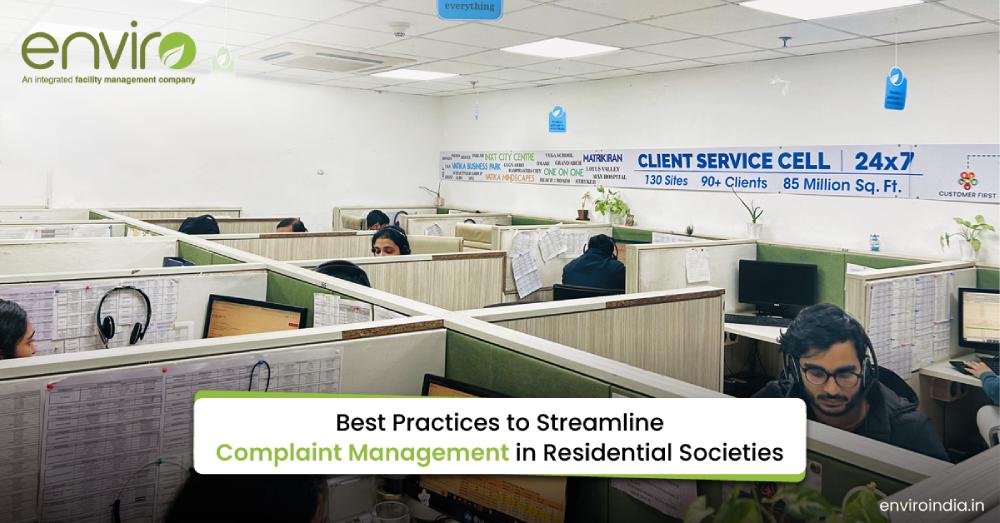Ensuring exceptional living standards and resident contentment stands as a paramount goal in managing any residential society. An efficient complaint management system plays a pivotal role in ensuring resident satisfaction and nurturing a harmonious living environment. However, efficiently handling complaints in such a setting poses inherent challenges. Here are some key strategies and best practices that the facility management company can embrace to streamline complaint management in residential societies.
1. Centralized System for Complaints
Centralized platforms for issue reporting, tracking and resolution streamline the Complaint Management process. It provides residents with easy access to log complaints, preferably through a dedicated complaint number, mobile app or website, ensuring transparency and accountability.
2. Categorization and Prioritization
Efficiently categorizing and prioritizing complaints is essential for prompt resolution. Classifying complaints based on urgency and nature ensures that critical issues are addressed promptly while also maintaining a systematic approach for non-critical concerns.
3. Clear Communication Channels
Establishing open and clear communication channels between the residents and the facility management team is crucial. Informing residents about the status of their complaints, TAT for resolution and regular follow-ups fosters trust. Providing regular updates to residents through Call, Email or SMS keep residents informed about the status of their complaint. Additionally, seek feedback from residents through surveys, feedback forms etc. to identify areas for improvement.
4. Training Sessions
Equipping staff with proper training and tools helps in handling the complaints efficiently. Training programs should focus on problem-solving, empathy, effective communication and customer service skills. A well-trained team contributes significantly to a smoother complaint resolution process.
5. Proactive Maintenance and Preventive Measures
Implement proactive maintenance strategies to prevent recurring issues. Regular checks and maintenance schedules ensure that potential issues are identified and rectified, before they escalate, leading to fewer complaints from the residents.
6. Encourage Resident Participation
Fostering a positive community environment where residents feel heard and valued is crucial. Encourage open dialogue, conduct general body meetings for residents where they can raise their concerns, provide feedback and collaborate with the society management team for better and prompt resolutions.
7. Continuous Process Improvement
Regularly review and analyze the complaint management process to identify bottlenecks or inefficiencies. Analyze data regarding types of complaints, timeline for issue redressal and resident feedback to identify patterns and areas for improvement.
8. Technology Integration
Automation tools can escalate unresolved complaints ensuring timely resolution. These tools enable residents to easily lodge complaints attaching images or details for clarity. Automation features can assign tickets to relevant personnel ensuring prompt resolution. This integration fosters efficient communication, accountability and swift issue resolution, enhancing resident satisfaction.
Conclusion
Managing complaints in residential societies isn’t just about resolving issues—it’s also about nurturing a sense of belonging and well-being among residents. By embracing these practices, a facility management team can create an environment where residents feel valued, heard and supported. This will not only enhance the quality of living but also build trust among residents, laying the groundwork for a resilient and vibrant residential society.





 WhatsApp Business +91 95990 08944
WhatsApp Business +91 95990 08944
 CSC
CSC  WhatsApp Business
WhatsApp Business 